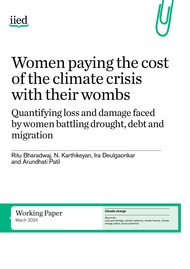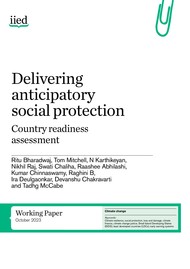Senegal readiness assessment: delivering anticipatory social protection

This study uses the ASPIRE tool to evaluate the readiness and effectiveness of social protection systems in Senegal, identifying gaps and opportunities to improve anticipatory measures and climate resilience.
The analysis shows that Senegal's social protection policy is well-rounded, closely aligned with its Emerging Senegal Plan, aiming to alleviate poverty and strengthen social and economic cohesion. The policy makes strides in gender empowerment and resilience-building against climate shocks, engaging a range of stakeholders like civil society organisations for effective execution. Nonetheless, it falls short in extending universal healthcare coverage and misses out on provisions for the portability of benefits for migrant communities. Additionally, while the policy attempts to prepare for climate shocks, it lacks specific contingency plans and data on beneficiaries, leaving gaps in its execution.
In terms of programme implementation, Senegal uses a single national registry to facilitate targeted aid to multiple vulnerable groups including women, children and the elderly. However, the country needs to make progress on integrating disaster risk financing, providing support for displaced and migrant communities, improving technology and policy coordination, and extending support to the most vulnerable populations.
Cite this publication
Available at https://www.iied.org/21941iied






